A number of the bills that passed during the 2024 Florida legislative session are taking effect July 1. And some of the most high-profile legislation involves the constitutionally protected right to free expression — and possibly even collides with it.
They implicate areas ranging from strip clubs to campaign advertisements, from schools to emergency scenes.
Here are some of the related changes to state law coming this summer, though many could soon after face First Amendment challenges in court.

No more 18-year-old strippers
Floridians will have to be the drinking age to strip for money, and employers who are caught hiring someone younger will face criminal penalties.
That age restriction won’t just apply in strip clubs. No one younger than 21 years old will be able to work in any “adult entertainment establishment,” which under state law also affects places like adult movie theaters and libraries.


Chaplains in schools
School districts and charter schools will have the ability to allow volunteer chaplains to provide support services to students.
The Satanic Temple has said it plans to take advantage if K-12 education leaders choose to do so, as first reported by the USA TODAY NETWORK-Florida.
Gov. Ron DeSantis responded that the group wouldn’t be able to, saying it’s not a religion, even though the IRS recognizes The Satanic Temple as a tax-exempt church.
Non-parents limited on challenging books
Floridians who are not parents or guardians of a “student with access to school district materials” will not be able to file more than one book challenge a month.
This follows some Florida school districts getting swarmed by hundreds of book challenges.
Others, though, have been preventively barring loads of books anyway, worried about running afoul of school library laws passed in recent years. And some avid book objectors are parents.
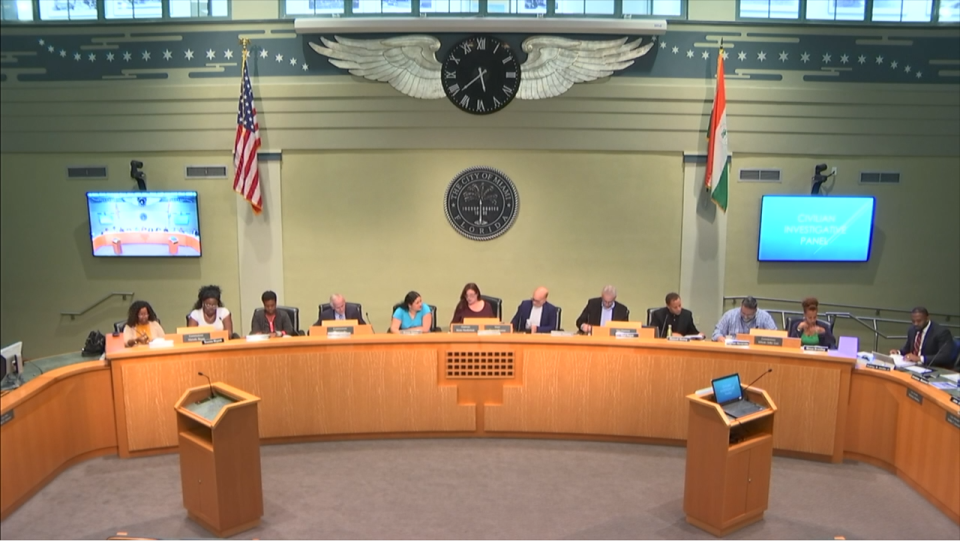

Citizen police oversight boards limited
Citizen police oversight boards will be limited on what they can do.
They will have to be re-established under county sheriffs and municipal police chiefs, who would appoint the members and can’t investigate complaints of officer misconduct.
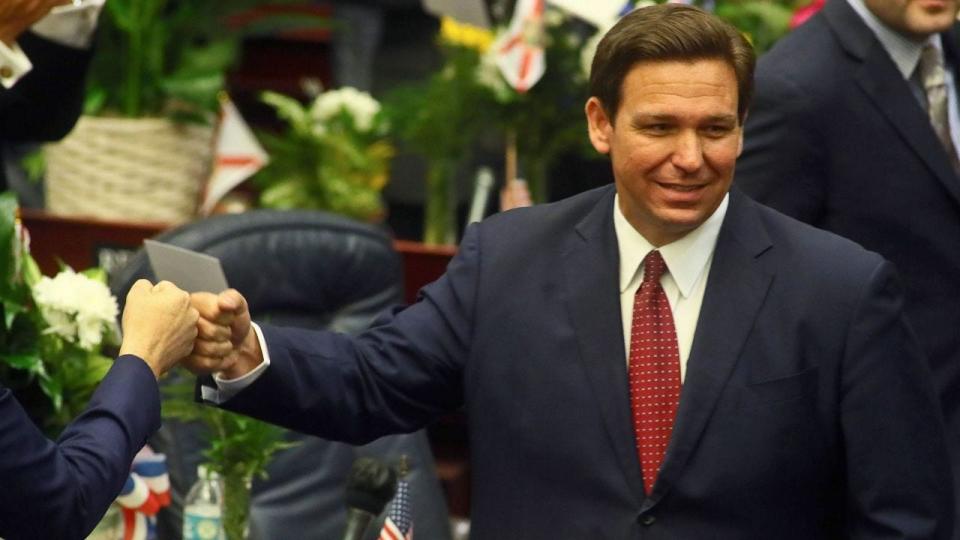

No ‘identity politics’ in teacher prep programs
Instruction that teaches “identity politics” or “distorts significant historical events” will be barred from teacher preparation programs, as well as theories that “systemic racism, sexism, oppression and privilege are inherent in the institutions of the United States and were created to maintain social, political and economic inequities.”
Yet previous Florida measures similarly aimed at limiting trainings and instruction have faced ongoing litigation and blocks in federal courts.
Disclaimers of AI in campaign ads
Disclaimers will be required on political advertisements that use artificial intelligence to “deceive” about a ballot question or negatively portray candidates doing something they didn’t do, with civil and criminal penalties for violations.
Though the governor signed the bill into law, his failed presidential campaign stoked controversy last year after it used AI-fabricated images in an ad showing former President Donald Trump hugging and kissing Anthony Fauci, the longtime federal health official who played a key role in COVID-19 treatment and prevention policy.
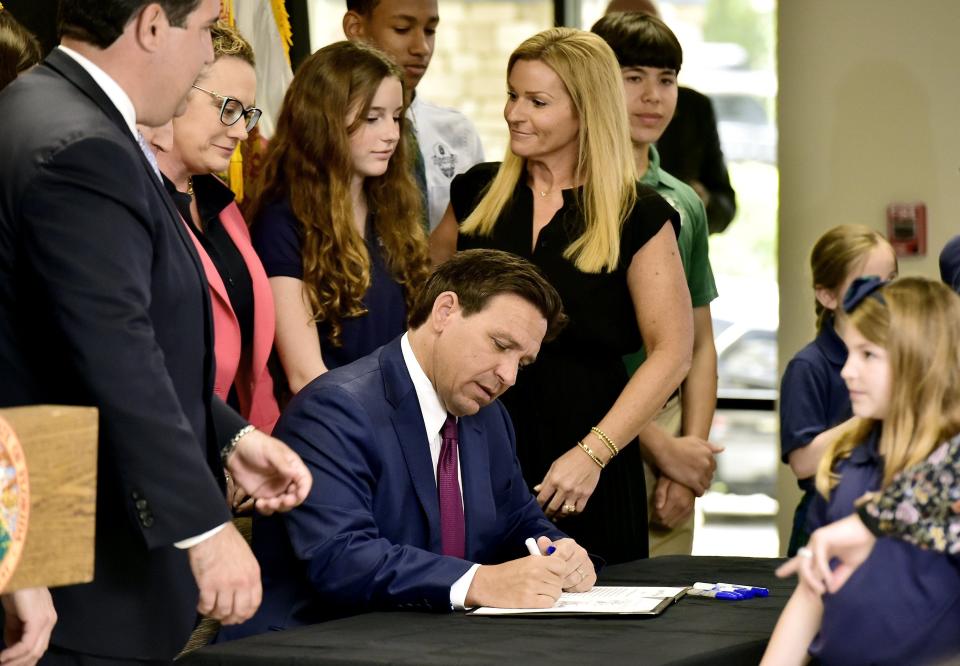

Social media restrictions not yet taking effect
But one of the most talked-about bills passed this past session is not taking effect until the start of 2025.
That measure bans minors under 16 from social media platforms with “addictive” features, unless they’re 14- or 15-year-olds who get a parent’s permission.
It also requires age verification to access pornographic websites in Florida.
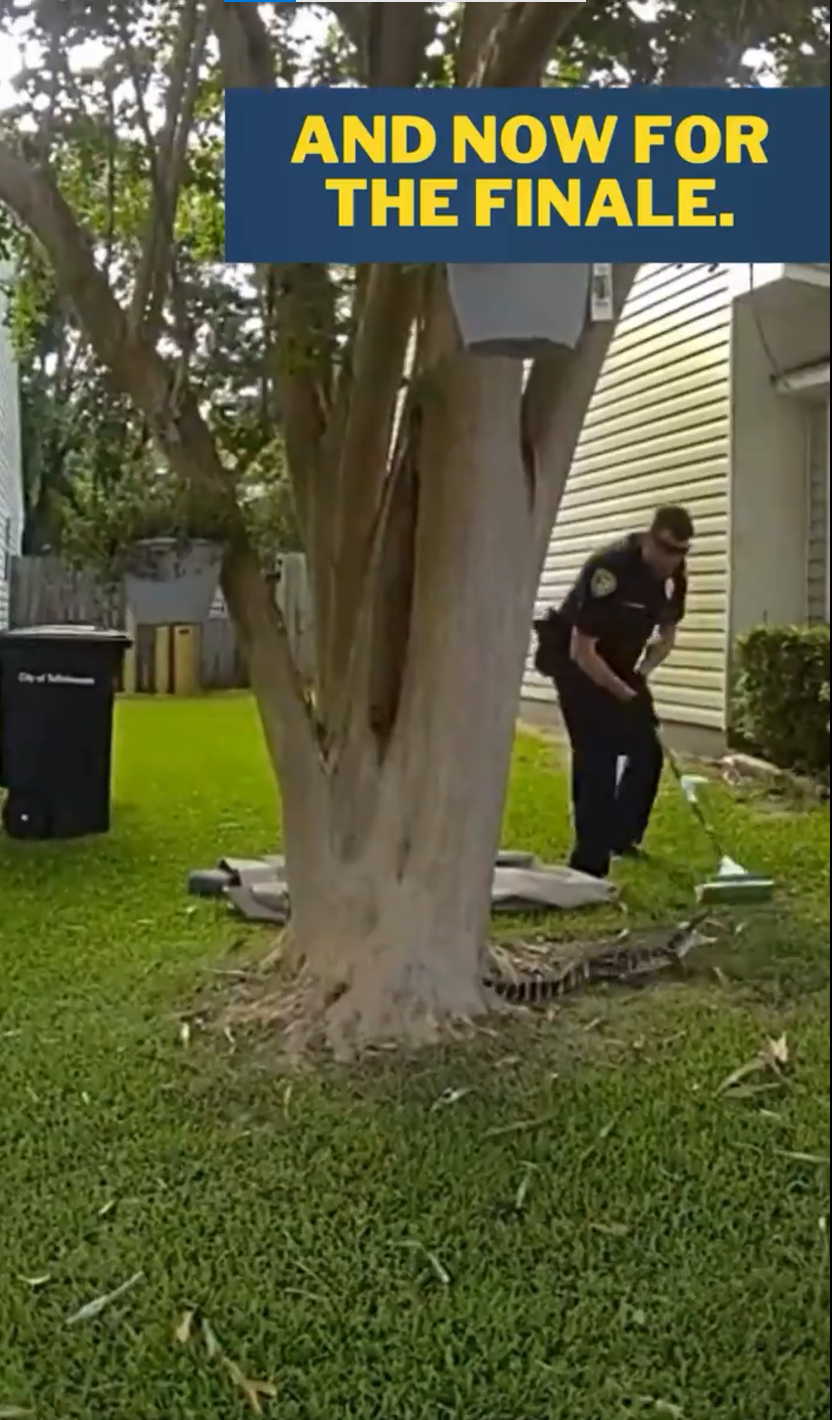

‘No-go’ zone around first responders
Also taking effect at the start of next calendar year: Criminal penalties await anyone who, after a warning, approaches or remains within 25 feet of working first responders, like police, with the intent of “impeding, threatening or harassing.”
Supporters of the bill say it will protect emergency personnel and those they’re helping, but opponents say the law is vaguely-worded and could be abused to prevent the documentation of police brutality.
But what didn’t pass last session?: What happened and what’s to come: A First Amendment recap of Florida’s legislative session
Proposals for next sessions coming in: Florida transparency advocates push measure to toughen public records violation penalties
Other state laws that take effect July 1
HOAs fees to be reined in; parking, vegetable gardens allowed


HB 1203, Homeowners’ Association is essentially a Homeowner’s Bill of Rights. As of July 1, HOAs will be prohibited from banning common-sense parking, fining residents for leaving garbage cans out on trash day, creating rules for the inside of structures or backyards (like prohibitions against gardens or clotheslines) that can’t be seen from the street, neighboring property or common area, and more. The law also mandates more transparency and accessibility on the part of the HOA officers or management companies.
HB 59, a requirement for HOAs to provide copies of all rules and covenants to every member of the association and to every new member going forward also goes into effect on July 1. A bill requiring HOAs to allow members to harden their homes against hurricanes became effective as soon as DeSantis signed it in May.
Local governments can’t protect workers from heat


The roughly 2 million people in Florida who regularly work outside in the state’s record-setting heat now must rely solely on their company’s policies to avoid heat stroke. One of the more controversial bills passed and one that drew national attention, HB 433, Employment Regulations, prevents local governments from creating or enforcing heat exposure requirements for businesses beyond state or federal requirements.
It also prohibits local governments from “maintaining a minimum wage other than a state or federal minimum wage” and prevents them from basing contract decisions on a company’s wages or benefits policies.
No sex at massage parlors
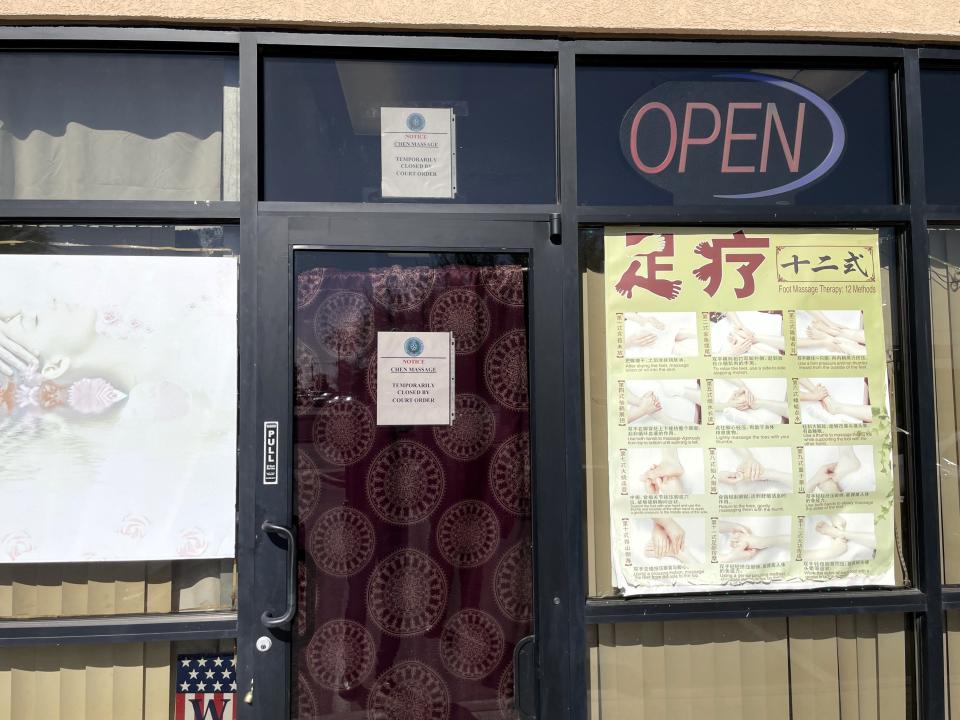

Under HB 197, Health Care Practitioners and Massage Therapy, any sexual activity is banned within a massage business and the Department of Health will suspend a massage therapist or business license if any employee at the business is arrested on charges related to kidnapping, human trafficking or prostitution.
It also prohibits condoms in the building, specifies how tinted the windows can be, regulates advertising and signage, prohibits anyone sheltering or sleeping on the premises, and adds money to the Department of Health for more personnel.
Teens can be scheduled for more, longer hours
The first version of Employment and Curfew of Minors (HB 49) that allowed 16- and 17-year-olds to work more than 40 hours a week and more than eight hours a day without breaks was widely panned by critics as a “child labor” bill, but by the time it got to the governor to be signed, it had been watered down. Under HB 49, 16-and 17-year-olds can’t work more than 30 hours a week unless they obtain parental permission (or unless they are home or virtually schooled).
The law also prohibits 16- and 17-year-olds from working more than eight hours if they have school the next day, unless it’s a Sunday or a holiday. The law requires a 30-minute break every four hours if the minor has a shift longer than eight hours.
Driving, parking, towing changes
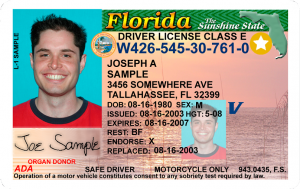

Currently, Florida Statutes just say that drivers must be licensed and fines can be levied. HB 1589, Driving Without a Valid Driver’s License adds penalties: first conviction is a second-degree misdemeanor, second conviction is a first-degree misdemeanor, and a third or subsequent conviction means a first-degree misdemeanor and 10 days in jail.
Under HB 179, Towing and Storage Practices, counties with maximum towing/storage rates must post them on their websites, towing services must now send lien notices faster and keep unclaimed vehicles for longer, and the law makes it easier to pay for and get your vehicle back.
Pulled into a private parking lot by mistake? HB 271, Parking on Private Property gives you a 15-minute grace period to get out. Parking facilities also must post their rules and rates at the entrance and are prohibited from selling the personal information of customers.
You can buy really big bottles of wine


HB 583, Larger Wine Bottles will allow the sale of bottles of wine up to 15 liters, or just under four gallons, at restaurants and retail locations. Currently, Florida wine lovers buying retail are limited to individual glass containers holding no more than 1 gallon.
You can shoot bears in self-defense


Floridians may now stand their ground against bears. Under HB 87, Taking of Bears, residents may kill a bear as long as they reasonably believe they or someone else, including pets, were in danger, they didn’t lure the bear or recklessly place themselves in harm’s way, and they report the incident and give the corpse to state officials.
Child safety, domestic violence, family planning
In response to the death of Gabby Petito at the hands of her husband Brian Laundrie, SB 1224, Protection of Children and Victims of Crime, empowers Guard ad Litems to protect children and requires law enforcement officers called out for domestic violence incidences to determine if a domestic violence victim is at a higher risk of death or serious injury based on a statewide domestic violence lethality assessment.
Children as old as 17 testifying about child abuse, sexual abuse or neglect will be able to present out-of-court statements under HB 305, Offenses Involving Children. The bill also changes the definition of people designated as sexual predators to include the first offense of sex trafficking of minors.
HB 385, Safe Exchange of Children requires sheriffs to designate at least one parking lot, with a purple light or signage and a camera surveillance system, for parents to safely exchange their child.
Parents may surrender newborn infants at hospitals, fire stations and EMS services up to 30 days after birth, no questions asked, under HB 775, Surrendered Infants. Current law restricts it to one week. Parents also may call 911 to arrange a pickup if they don’t have transportation.
The Department of Health must establish a “comprehensive state website” with information about pregnancy and public and private parenting resources such as education, maternal health, prenatal and postnatal services, mentorship programs for fathers, financial assistance and adoption services under HB 415, Pregnancy and Parenting Resources.
HB 461, Pregnant Women Excused from Jury Service, allows a person who has given birth within six months before the reporting date to be excused, from jury duty if requested.
Emergency insulin, HIV screenings, skin cancer screenings
Need insulin but can’t get ahold of your doctor to authorize your prescription? Under HB 201, Emergency Insulin Refills, pharmacists may provide emergency insulin refills for diabetes mellitus patients, but not more than three consecutive times per year.
HB 159, HIV Infection Prevention Drugs allows licensed pharmacists to screen adult patients for HIV exposure; provides pharmacist certification to order and distribute PEP (post-exposure prophylaxis) which can prevent HIV after a possible exposure.
An estimated 9,880 people in Florida are expected to get new melanomas, the most dangerous of the skin cancers, in 2024, according to the American Cancer Society. HB 241, Skin Cancer Screenings requires the state health insurance plan to provide coverage for annual skin cancer screenings without a deductible, copayment, coinsurance or other cost-sharing requirement for coverage. The plan may not be bundled with any other procedure or service.
New holidays, commemorations
Two new commemorations were added to the official state schedule, including:
HB 357, Veterans Appreciation Month: Changes “Veterans Week” to “Veterans Appreciation Month,” which will be in November.
HB 591, Hot Car Death Prevention Month: Designates April as “Hot Car Death Prevention Month” in honor of 10-month-old Ariya Paige, who died last year after being left in a hot car for five hours.
Chris Bridges of the Gannett-Florida Network and Jim Turner of The News Service of Florida contributed to this article.
This reporting content is supported by a partnership with Freedom Forum and Journalism Funding Partners. USA Today Network-Florida First Amendment reporter Douglas Soule can be reached at [email protected].
This article originally appeared on Palm Beach Post: New Florida laws taking effect July 1
Source Agencies


